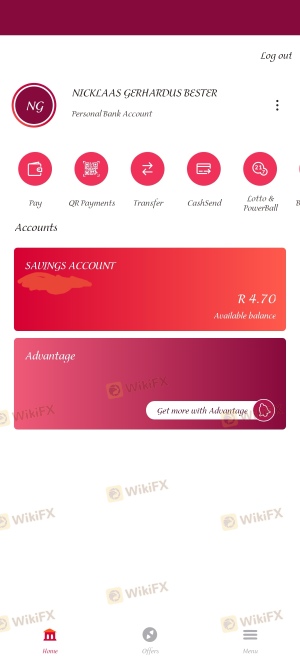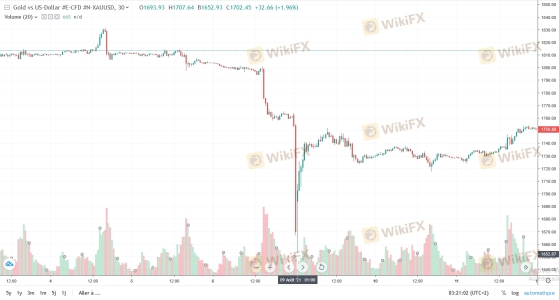Is Tradingview safe?

Pros
Cons
Is TradingView A Scam?
Introduction
TradingView is a prominent online platform that provides advanced charting tools, social networking capabilities, and market analysis for traders and investors worldwide. Established in 2011, it has rapidly gained popularity, boasting over 50 million active users who utilize its features for trading various asset classes, including stocks, forex, and cryptocurrencies. Given the critical role that brokerage firms play in the trading ecosystem, it is essential for traders to thoroughly evaluate the legitimacy and reliability of platforms like TradingView before committing their funds or trading strategies.
In the ever-evolving landscape of online trading, the importance of assessing a broker's credibility cannot be overstated. Traders need to ensure that their chosen platform operates within a secure and regulated environment, as this directly impacts the safety of their investments. This article aims to provide a comprehensive evaluation of TradingView, analyzing its regulatory status, company background, trading conditions, customer experiences, and overall risk factors. The investigation is based on a review of various online sources, user feedback, and regulatory information to present a balanced view of whether TradingView is a safe and credible trading platform.
Regulation and Legitimacy
A crucial aspect of evaluating any trading platform is understanding its regulatory status. Regulation serves as a safeguard for traders, ensuring that the broker adheres to specific standards and practices that protect investors' interests. TradingView itself does not operate as a broker; instead, it functions as a charting and analysis platform that integrates with various brokerage firms. This means that the safety of funds ultimately depends on the broker chosen by the user.
| Regulatory Authority | License Number | Regulatory Region | Verification Status |
|---|---|---|---|
| N/A | N/A | N/A | N/A |
Despite not being a regulated entity, TradingView has established partnerships with several reputable brokers worldwide. This integration allows traders to execute trades directly from the TradingView platform while relying on the regulatory protections provided by their chosen broker. The quality of regulation varies between brokers, so it is essential for traders to research and select a broker with a solid regulatory background.
The lack of direct regulation does raise some concerns. While TradingView has implemented robust security measures, including SSL encryption and two-factor authentication, the absence of oversight from a financial authority means that users should exercise caution when selecting a broker through the platform. It is advisable to choose brokers that are regulated by reputable authorities, such as the Financial Conduct Authority (FCA) in the UK or the Commodity Futures Trading Commission (CFTC) in the US.
Company Background Investigation
TradingView was founded by a team of financial analysts and software engineers, including Stan Bokov, Denis Globa, and Constantin Ivanov. The company has grown significantly since its inception, evolving from a simple charting tool to a comprehensive trading platform that offers a wide range of features, including social networking capabilities, community-driven indicators, and advanced analytical tools. The ownership structure of TradingView is private, and it has attracted significant investment from notable venture capital firms, which adds credibility to its operations.
The management team at TradingView boasts extensive experience in both finance and technology, which is reflected in the platform's user-friendly design and innovative features. The company has made a concerted effort to maintain transparency, regularly updating users about new features, community guidelines, and security measures. However, some users have expressed concerns about the lack of direct customer support, particularly for those using the free version of the platform, which may impact their overall experience.
In terms of information disclosure, TradingView provides a wealth of educational resources, tutorials, and community-driven content that help users navigate the platform effectively. The platform encourages users to share their trading ideas and strategies, fostering a collaborative learning environment. Nevertheless, potential users should be aware that the quality of information shared within the community can vary, and exercising due diligence is necessary when following trading ideas from other users.
Trading Conditions Analysis
Trading conditions play a significant role in determining the overall trading experience on a platform. TradingView offers a freemium model, allowing users to access basic features for free while providing premium subscription plans for more advanced functionalities. The pricing structure is competitive, making it accessible for traders of all levels.
| Fee Type | TradingView | Industry Average |
|---|---|---|
| Major Currency Pair Spread | Varies by Broker | 1.0 - 2.0 pips |
| Commission Model | Varies by Broker | 0.1% - 0.5% |
| Overnight Interest Range | Varies by Broker | 0.5% - 3.0% |
The fee structure on TradingView is primarily influenced by the broker with which a user chooses to connect. While the platform itself does not charge commissions for trades, the brokers may impose their own fees, including spreads and commissions. It is essential for traders to compare these costs against industry averages to determine the overall competitiveness of their chosen broker.
One area of concern is the potential for hidden fees or unfavorable trading conditions with certain brokers. Users should be vigilant about understanding the fee structures of the brokers they connect to TradingView, as these can vary significantly. Additionally, some users have reported issues with unexpected charges or unclear fee disclosures, which can lead to frustration and mistrust.
Customer Funds Safety
The safety of customer funds is a paramount concern for any trading platform. TradingView does not hold customer funds directly, as it operates primarily as a charting and analysis tool. Instead, users must connect their accounts to regulated brokers, which are responsible for safeguarding client funds. This separation of services means that the safety of funds largely depends on the broker's policies regarding fund segregation, investor protection, and negative balance protection.
TradingView has implemented several security measures to protect user data, including SSL encryption and two-factor authentication. However, users should be aware that these measures do not extend to the protection of funds held by brokers. It is crucial for traders to choose brokers that offer robust safety features, such as segregated accounts and investor compensation schemes.
Historically, TradingView has not faced significant issues regarding fund safety, primarily because it does not manage client funds. However, there have been instances where users experienced challenges with brokers integrated into the platform, including delays in withdrawals or difficulty accessing funds. These issues highlight the importance of selecting a reputable broker with a proven track record of fund security.
Customer Experience and Complaints
Customer feedback is a vital component of evaluating any trading platform. TradingView's user experience is generally positive, with many users praising its intuitive interface, extensive charting capabilities, and active community. However, some users have raised concerns regarding customer support and the handling of complaints.
| Complaint Type | Severity Level | Company Response |
|---|---|---|
| Withdrawal Issues | High | Slow response times |
| Technical Glitches | Medium | Generally responsive |
| Fee Discrepancies | High | Varies by broker |
Common complaints about TradingView often revolve around issues with connected brokers, including withdrawal delays and unexpected fees. While TradingView itself has received praise for its platform, the quality of service can vary significantly depending on the broker chosen by the user. For instance, some users have reported frustration with the slow response times from customer service when dealing with issues related to withdrawals or account management.
One notable case involved a user who experienced significant delays in withdrawing funds from a broker connected to TradingView. Despite multiple attempts to contact customer support, the user reported receiving slow responses, which led to frustration and dissatisfaction. This highlights the importance of choosing a broker with reliable customer service and efficient withdrawal processes.
Platform and Trade Execution
The performance of a trading platform is crucial for successful trading. TradingView is known for its stable and responsive platform, offering a wide range of charting tools, indicators, and customization options. Users can access real-time data and execute trades seamlessly through integrated brokers. However, the quality of trade execution can vary depending on the broker.
Traders have reported generally positive experiences with order execution on TradingView, but some have noted instances of slippage and order rejections, particularly during high volatility periods. This can be a concern for day traders and scalpers who rely on precise execution to capitalize on short-term price movements. While TradingView itself does not control execution quality, it is essential for users to select brokers known for their reliability and speed in executing trades.
Overall, TradingView's platform is well-regarded for its user-friendly design and comprehensive features. However, traders should remain vigilant about the execution quality offered by their connected brokers and be prepared to switch if they encounter persistent issues.
Risk Assessment
Using TradingView involves various risks that traders should be aware of. While the platform itself is generally safe, the risks associated with the brokers integrated into TradingView can significantly impact users' trading experiences.
| Risk Category | Risk Level | Brief Explanation |
|---|---|---|
| Regulatory Risk | Medium | Varies by broker; ensure proper regulation |
| Execution Risk | High | Potential for slippage and order rejections |
| Data Security Risk | Low | SSL encryption and two-factor authentication in place |
To mitigate these risks, traders should conduct thorough research on the brokers they plan to connect to TradingView. This includes verifying the broker's regulatory status, understanding their fee structures, and evaluating their customer service quality. Additionally, users should consider utilizing the paper trading feature on TradingView to practice their strategies without risking real money.
Conclusion and Recommendations
In conclusion, TradingView is a reputable platform that offers advanced charting and analysis tools for traders worldwide. While it does not operate as a broker, its integration with various reputable brokers allows users to execute trades directly from the platform. However, traders should exercise caution when selecting a broker, as the safety of funds and the quality of service can vary significantly.
Overall, TradingView does not exhibit signs of being a scam, but potential users should be aware of the risks associated with the brokers they choose. It is advisable to select brokers that are well-regulated, transparent in their fee structures, and known for their reliable customer service.
For traders looking for alternatives, consider brokers like Interactive Brokers or OANDA, which have strong regulatory backgrounds and are known for their reliability. Ultimately, conducting thorough research and due diligence will help traders make informed decisions and enhance their trading experiences on TradingView.
Is Tradingview a scam, or is it legit?
The latest exposure and evaluation content of Tradingview brokers.


Tradingview Similar Brokers Safe
Whether it is a legitimate broker to see if the market is regulated; start investing in Forex App whether it is safe or a scam, check whether there is a license.
Tradingview latest industry rating score is 1.52, the higher the score the safer it is out of 10, the more regulatory licenses the more legitimate it is. 1.52 If the score is too low, there is a risk of being scammed, please pay attention to the choice to avoid.